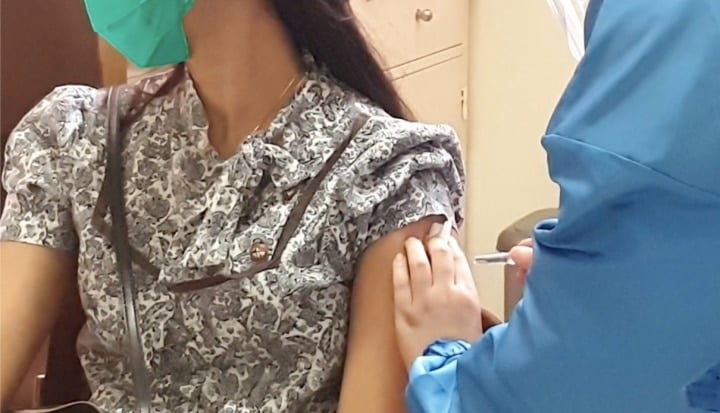Cuba hopes to inoculate its entire population against COVID-19 with a home-grown vaccine this year. The country has four potential vaccines in development, the most advanced of which – Soberana II – is due to start Phase III trials in March with 150,000 volunteers. If it clears this final clinical hurdle, the Cuban vaccine will be the first to be developed in Latin America.
According to the Havana-based Finlay Vaccine Institute, 100 million doses could be supplied in 2021 for both domestic use and export. Cuba has signed a deal to carry out clinical trials in Iran in collaboration with the country’s Pasteur Institute, while Jamaica, Viet Nam and Venezuela, among others, have expressed interest in obtaining the vaccine once it passes the necessary safety and efficacy tests.
As international squabbles over fair distribution grow, a successful roll-out of Soberana II could provide a potential lifeline to developing countries seeking to immunize their populations against COVID-19.
That the small Caribbean island is ahead of many more developed countries in the race to find an effective vaccine may seem surprising. Yet decades of experience and investment in Cuba’s biotechnology and pharmaceutical sectors, which in its early stages was supported by the United Nations Industrial Development Organization (UNIDO), have enabled resources to be quickly and efficiently directed to emergency vaccine development.
In the years following the 1959 Revolution, Cuba made the establishment of a high-level, prevention-focused health care system a priority. The country’s approach to health was both a matter of socialist principles and a response to a US trade embargo, which from 1962 onwards blocked almost all imports from the US, including medicines and other essentials.
Cuba set about creating scientific research institutes to support the development of a home-grown pharmaceutical industry that would meet the needs of its health care system. For example, from the mid-1960s the government invested increasingly in science infrastructure, including the establishment of the National Centre for Scientific Research (CNIC), which helped to train many scientists and engineers throughout the 1970s.
As part of a drive to produce its own medicines, in the late 1970s the Cuban government sought help from UNIDO to build a plant to ramp up the production of pharmaceutical products. The UNIDO project enlisted the expertise of an Indian company, Sarabhai Chemicals, to establish Cuba’s first chemical synthesis plant for the production of generic pharmaceutical products. Sarabhai supplied technical know-how and major equipment, and trained Cuban personnel in India, as well as supervising the installation, testing and commissioning.
The plant, the Empresa Farmacéutica 8 de Marzo, was financed by contributions from India and the United Nations Development Programme, making it an early example of South-South and triangular industrial cooperation.
The introduction of advanced technology for the production of pharmaceutical compounds and the training provided to numerous Cuban experts, paved the way for the scaling up of generic medicine production in the following years.
Cuba’s early focus on health, medical research and science also put it in a good position to take advantage of the advances in genetic engineering that led to the rapid growth in biotechnology in the 1980s. The government threw its full weight behind the sector, spurred on by the need to deal with recurrent disease outbreaks, including the widespread presence of meningitis B.
UNIDO became involved again, helping bring the country’s own version of a generic hepatitis B vaccine to fruition, and then later, in the mid-1990s, helping scale up the production of anti-cancer drug, CIMAher (nimotuzumab).
Today, the Empresa Farmacéutica 8 de Marzo is affiliated with the state-owned Biotechnological and Pharmaceutical Industries Business Group, known as BioCubaFarma. The Group is home to over 30 manufacturing companies and institutes, including the Finlay Vaccine Institute with its Soberana II COVID-19 vaccine.
Now, over 40 years after its first project in Cuba, UNIDO continues to offer support to the sector. A Slovenian-Cuban venture, implemented in cooperation with the Slovene Enterprise Fund, is developing a business model that ties together innovation in the biopharma, medical and nanotechnologies sectors in an effort to advance the technologies of the Fourth Industrial Revolution.
Cuba’s success in creating a viable, domestic pharmaceutical manufacturing industry shows what can be achieved with targeted investment and political will. And, while organizations such as UNIDO have long argued for greater development of domestic industry in developing countries, the current crisis has shown more clearly than ever why local research and development and production capacities are vital.
When poorer countries are unable to develop and manufacture vaccines and other medical treatments, they risk being left at the back of the queue as rich countries vie with each other for the lion’s share. According to a recent report by the Economist Intelligence Unit, middle-income countries won’t be able to vaccinate the bulk of their populations until late 2022 or early 2023, while in the poorest countries mass immunization could take until 2024, if indeed it happens at all.
Could it be that there are some valuable lessons to be learned from Cuba’s experience for developing nations scrambling to gain access to vaccines during the COVID-19 crisis?










